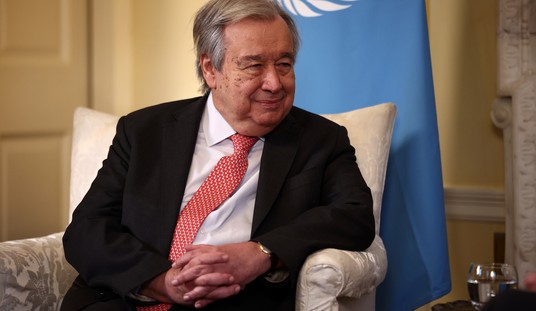Last summer we were already watching the debate over Puerto Rico’s failing finances boil over as their governor threatened US lawmakers with electoral consequences if their municipalities and state run utility companies weren’t allowed to declare bankruptcy. That’s a tall order to fulfill because current law treats the territory differently from the fifty states, forbidding them from doing so to escape their debts. Amending those laws to create a special allowance for them is currently under debate in Congress, but it’s unclear if there is sufficient support for the measure. The bankruptcy question reached the Supreme Court this week, with Puerto Rico’s chief creditors for their utilities arguing that they shouldn’t be stiffed on the money owed. Given the straight forward wording of the law, this one appeared to be a no brainer until, as Noah Feldman of Yahoo Finance News describes it, Associate Justice Sonia Sotomayor stepped in and basically argued Puerto Rico’s case for them.
Before Tuesday, I’d have said that Puerto Rico had no chance to win its legal fight to let its municipalities and utilities declare bankruptcy. That’s how the island hopes to resolve its overwhelming debt problems, but the federal bankruptcy code says that it can’t…
Then Sonia Sotomayor stepped in. Oral arguments before the Supreme Court rarely change the outcome of a case, yet Tuesday’s session may turn out to be the exception. In a fascinating and unusual argument, Justice Sotomayor, who is herself of Puerto Rican descent, spoke by my count an astonishing 45 times. Sotomayor left no doubt that she was speaking as an advocate…
First, Sotomayor walked Puerto Rico’s attorney, Christopher Landau, through his own argument with a precision that exceeded his own. She answered other justices’ hostile questions for him, better than he did. Then she dominated Matthew McGill, the lawyer for the creditors of Puerto Rico’s electrical utility, who are fighting the bankruptcy bid. In the second half of the argument, the other justices mostly stood by and let her go at him.
Last summer, when we first began covering this story, the U.S. Court of Appeals for the First Circuit delivered a unanimous ruling saying that the law simply doesn’t allow for this to happen. (Some of them argued that the law should be changed in this case, but didn’t disagree that it simply is what it is at present.) For their part, Puerto Rico is arguing that they should be able to craft their own bankruptcy laws outside of the federal system. Sotomayor not only bought the argument, but apparently argued it on behalf of the the defendants better than their own attorney did.
What’s really strange here is that the other liberal justices, originally skeptical of the premise, seemed to allow Sotomayor to sway them, bringing them around to her position.
Justice Elena Kagan did something that’s rare in an oral argument: She announced that Landau (speaking under Sotomayor’s tutelage) had clarified her view. “I think I get what you’re saying now, which I didn’t when I started,” Kagan told Landau. Initially, Kagan had seemed skeptical that Puerto Rico’s argument could be made to fit the statutory text. Now she was claiming to see the light…
Justice Stephen Breyer, who had seemed skeptical of Landau’s position, also appeared to change sides, or at least to be considering doing so.
There’s another wrinkle to this case because this time the court will be deciding the case with only seven justices voting. (Samuel Alito is recused.) As an aside, this is yet another example of how the lack of a replacement for Antonin Scalia doesn’t stop the court from performing its duties, this time to the advantage of the liberal justices.
The real question here, however, is how much the justices are supposed to be hearing cases as opposed to arguing for one side or the other themselves. The fact that Sotomayor is of Puerto Rican heritage herself shouldn’t really be a factor here so much as asking if it’s appropriate for her to be essentially acting as the advocate for one of the parties seeking a decision. Challenging the arguments of the two sides is normal, but Sotomayor seems to be contradicting everyone in a robe who has heard the case before her, claiming that Puerto Rico can essentially rewrite the laws to suit their own needs.
And people still worry that we’ve politicized the Supreme Court to the point where it no longer serves its designated purpose. Amazing, eh?








Join the conversation as a VIP Member